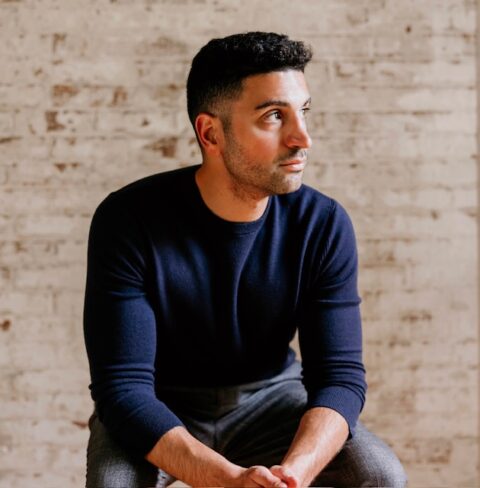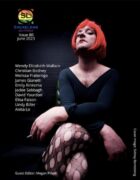You managed to successfully fit a saga into about two pages of text. The story here is a deep and complex one. What is the advantage of compressing it? Why not let it breathe a little?
I knew the story had to be written in a relentless, rapid style because it would align really well and correlate with the dire situation the narrator is in. Loss of innocence can sometimes happen in an instant and the compression mixed with the magical realism is a depiction of how some kids are forced to grow up quickly. This was a coming-of-age story minus the levity one would come to expect of that genre. Importantly, the language, syntax and word choice needed to be interdependent with the pace and propulsion. It was essential for the cadence to represent the urgency and palpable nature of the situation.
One of the barriers here is a language barrier, and it adds to the violence in unexpected ways. What do you see as the connection between language barriers and violence?
I feel we always look at language barriers like any other type of unknown. We tend to fear what we don’t know and view differences as this hostile constituent in others. The language barrier in the story is a pivotal component in the narrator’s journey from boy to man in the sense that it represents so much of what he doesn’t know yet which creates a sense of fear and defense in him. His understanding of the language in the later part of the story is a testament to his transformation.
The mother’s pain creates both a cushion and a jumping off point for the narrator … her emotional and spiritual pain, but also cancer … which is sort of a ghost in this story that ties a lot of it together. Would it be fair to say that the pain … in all its facets … is also a character here?
The mother definitely serves as the catalyst for the narrator’s actions. As the story progresses, he comes to terms with how much of his father he must become and continues the cycle of violence in order to protect her. This propels him forward in time, breaking the mother’s heart as her little boy loses his innocence too early and fulfills every mother’s biggest fear of their child growing up too quickly. His action at the end of the story is heroic on the surface but comes with implicit consequences that create ambiguity around the morals of it. So pain is very much its own character and acts as this governing presence that is also inherent in all three of the characters.
The time compression allows the story to almost loop back on itself, like memory. But it also reads like some of the finer magical realism I’ve read. Have you been influenced at all by magical realism? If so, who? If not, who are you reading these days?
I tend to gravitate towards stories with magical realism elements. I recently read and loved “You Were Only Waiting for This Moment to Arrive” by Kathy Fish and Heather Monley’s “Town of Birds.” I also love stories that are just the right amount of speculative. Stories that straddle that line between possibility and impossibility. I think “How We Survive” by K.B. Carle and “Wolf Radio” by Riley Manning do that really well. I have also been reading a lot of work by Eliot Li, Amy Stuber, Rebecca Van Laer, and Danny DeRock. I usually turn to writers like them when I am in a creative rut of sorts. I really admire writers who can put out great story after great story. I hope to get to a point in my writing career where I can annually generate multiple stories that are rich, meaningful, and original.
Does that mother imprint as Future Wife hold true, or is it a nice story device?
I will let the reader scrutinize the actions that unfold and what may or may not come to fruition. One of the many luxuries of magical realism is that it opens up interpretations and broadens implications. I wanted to sprinkle clues and evidence showing that the narrator’s life as a man has similarities to his father’s while also letting the reader wonder if the narrator’s action at the end of the story has turned him into a hero or a version of his father.



 The core workshop of SmokeLong Fitness is all in writing, so you can take part from anywhere at anytime. We are excited about creating a supportive, consistent and structured environment for flash writers to work on their craft in a community. We are thrilled and proud to say that our workshop participants have won, placed, or been listed in every major flash competition. Community works.
The core workshop of SmokeLong Fitness is all in writing, so you can take part from anywhere at anytime. We are excited about creating a supportive, consistent and structured environment for flash writers to work on their craft in a community. We are thrilled and proud to say that our workshop participants have won, placed, or been listed in every major flash competition. Community works.